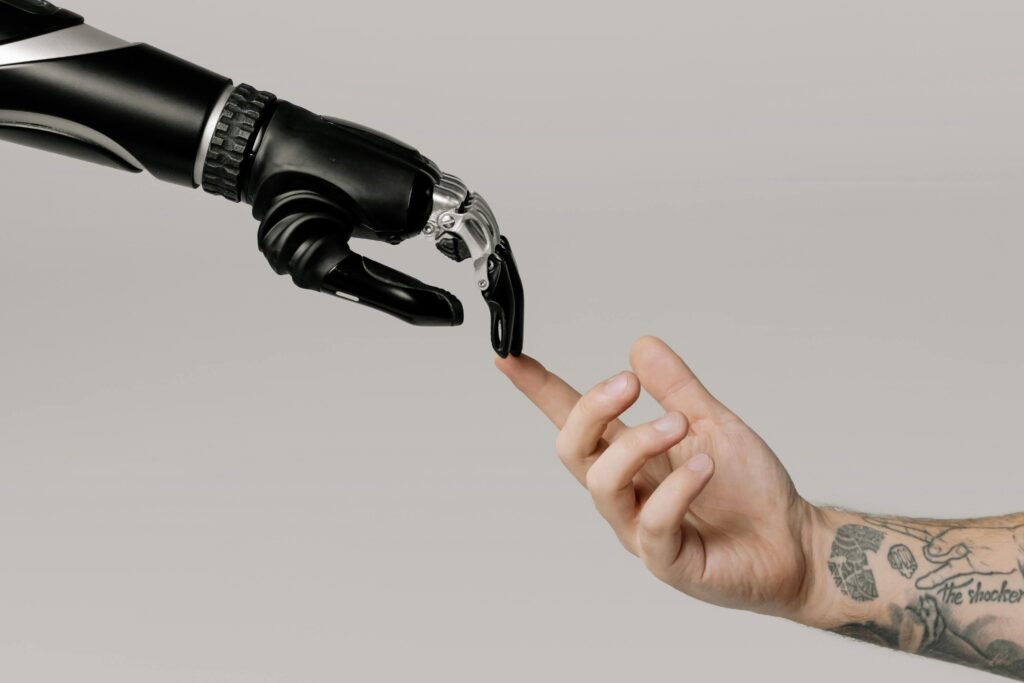


Artificial Intelligence: Shaping the Future
Artificial Intelligence (AI) refers to the development of computer systems capable of performing tasks that typically require human intelligence. These tasks include learning, reasoning, problem-solving, understanding language, and even recognizing emotions. AI has rapidly evolved over the years and is now a critical part of many industries, including healthcare, finance, education, and entertainment.
One of the most significant advancements in AI is machine learning, where computers are trained to learn from data without being explicitly programmed. For instance, AI can analyze patterns in large datasets to make predictions, such as forecasting the weather or identifying diseases. Another important subset of AI is natural language processing (NLP), which allows machines to understand and communicate in human languages. Voice assistants like Siri and Alexa are examples of NLP in action.
AI is also transforming industries through automation. In manufacturing, AI-powered robots can assemble products with precision, while in finance, algorithms can detect fraudulent transactions. Moreover, AI has a substantial role in developing self-driving cars, which rely on sensors and algorithms to navigate roads safely.
Despite its numerous benefits, AI raises ethical concerns. Issues like data privacy, job displacement, and decision-making transparency are hotly debated. Governments and organizations worldwide are working to establish guidelines to ensure the responsible use of AI.
As AI continues to grow, it offers endless possibilities to improve lives while also presenting challenges that need to be carefully managed.
Vocabulary Explanation:
- Artificial Intelligence (AI) (noun) – The simulation of human intelligence in machines that can perform tasks requiring intelligence (e.g., Artificial intelligence powers many modern technologies like chatbots).
- Machine learning (noun) – A branch of AI that enables machines to learn from data without explicit programming (e.g., Machine learning helps computers recognize patterns).
- Natural language processing (NLP) (noun) – A field of AI focused on enabling machines to understand and communicate in human languages (e.g., NLP is used in language translation apps).
- Automation (noun) – The use of technology to perform tasks with minimal human intervention (e.g., Automation is common in car manufacturing).
- Algorithms (noun) – Step-by-step instructions for solving problems or performing tasks (e.g., AI algorithms can detect fraud in financial transactions).
- Ethical concerns (noun) – Issues related to morals and principles about what is right or wrong (e.g., Ethical concerns about AI include data privacy).
- Data privacy (noun) – The protection of personal information from being accessed or shared without consent (e.g., Data privacy is a key issue in AI development).
- Self-driving cars (noun) – Vehicles that can drive themselves using sensors and AI without human input (e.g., Self-driving cars rely on AI to make decisions).
- Forecasting (noun) – Predicting future trends or events based on data (e.g., AI is widely used for weather forecasting).
- Transparency (noun) – The quality of being clear and open, especially in decision-making processes (e.g., Transparency in AI systems is essential to build trust).
Questions:
1. What is Artificial Intelligence (AI)?
A) A type of human intelligence
B) A machine capable of repairing itself
C) A computer system that performs tasks requiring human intelligence
D) A natural process in human learning
2. What is the role of machine learning in AI?
A) It programs robots to follow human instructions
B) It enables machines to learn from data without being explicitly programmed
C) It powers electrical devices in homes
D) It translates computer codes into natural languages
3. Which technology uses Natural Language Processing (NLP)?
A) Weather forecasting
B) Self-driving cars
C) Voice assistants like Siri and Alexa
D) Robotics in manufacturing
4. What ethical concern is associated with AI?
A) It reduces the cost of products
B) It solves all human problems
C) It raises questions about data privacy and job displacement
D) It eliminates the need for education
5. How do self-driving cars function?
A) They use AI algorithms and sensors to navigate roads
B) They are controlled by humans remotely
C) They follow pre-programmed routes without sensors
D) They rely on human drivers for guidance
6. What is one benefit of AI in healthcare?
A) AI can predict diseases by analyzing medical data
B) AI completely replaces doctors in hospitals
C) AI manufactures medicines faster than humans
D) AI ensures 100% accurate treatments
Answer Key:
- C) A computer system that performs tasks requiring human intelligence
- B) It enables machines to learn from data without being explicitly programmed
- C) Voice assistants like Siri and Alexa
- C) It raises questions about data privacy and job displacement
- A) They use AI algorithms and sensors to navigate roads
- A) AI can predict diseases by analyzing medical data
